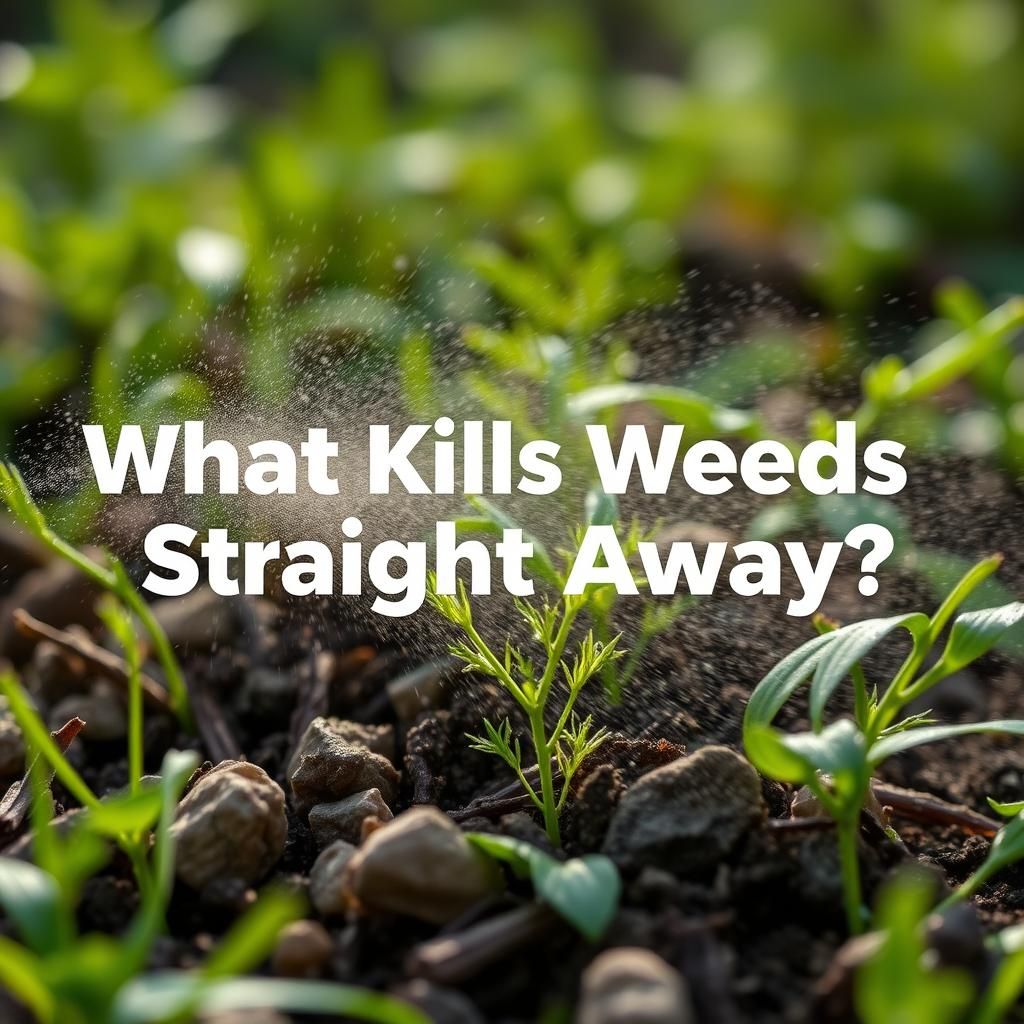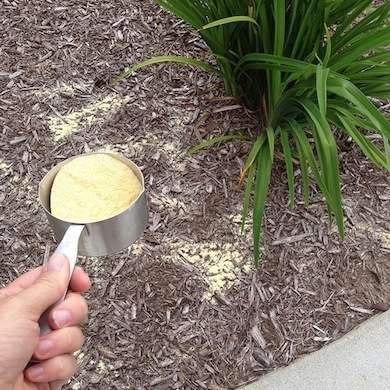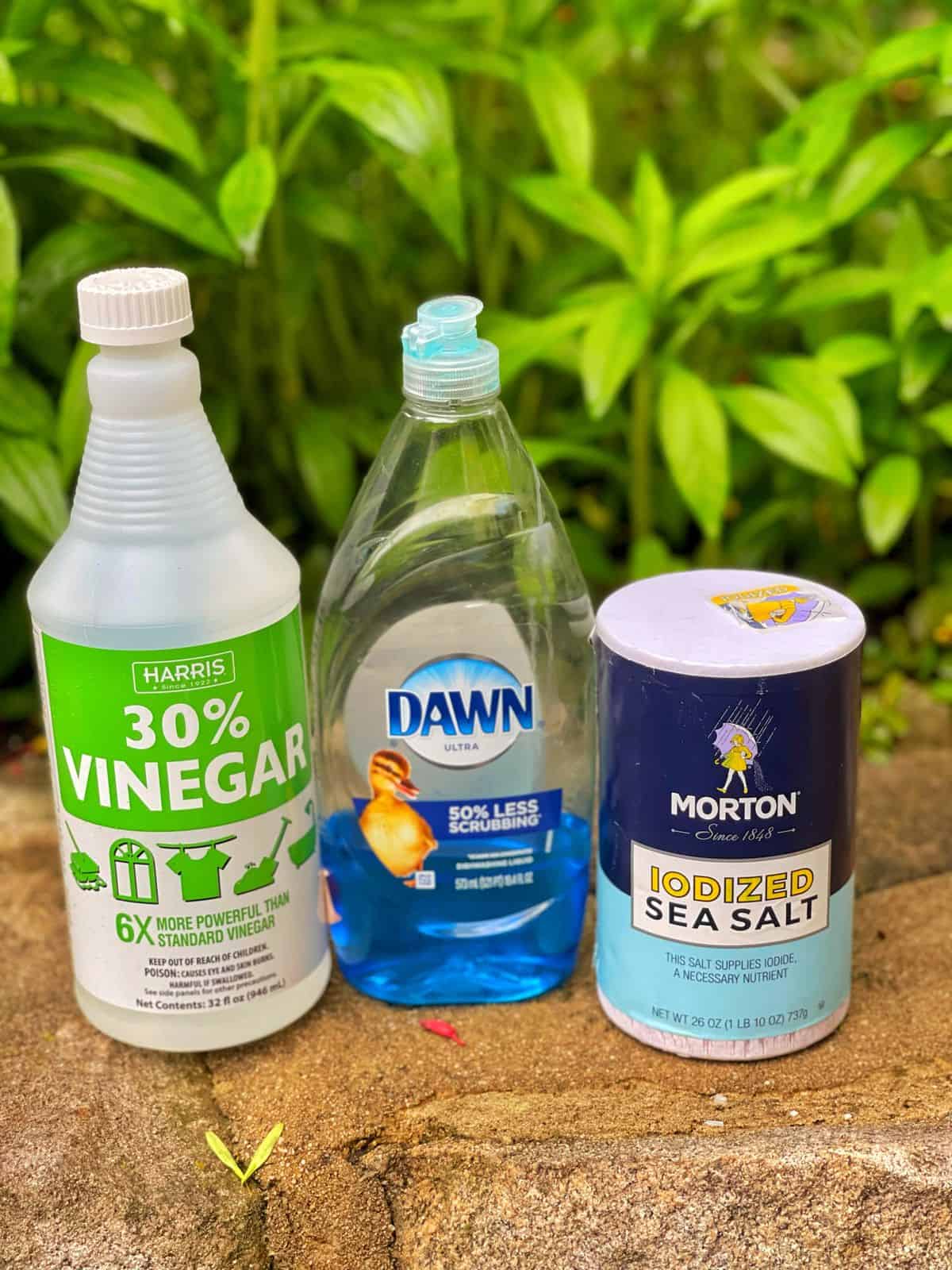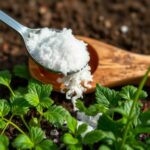What Kills Weeds Straight Away? Top Solutions for Quick Results

Weeds can be a gardener's worst nightmare, stealing nutrients and water from your plants and diminishing the beauty of your landscape. When they invade, quick and effective solutions are essential for maintaining a healthy garden. In this article, we will explore the top methods and products that can eliminate weeds instantly, providing immediate relief for your outdoor space. From natural remedies to chemical treatments, we’ll cover a range of options to suit different preferences and situations. Discover how to regain control of your garden and promote the flourishing growth of your desired plants with the most efficient weed-killing strategies.
What Kills Weeds Straight Away?
Using a non-selective herbicide is one of the most effective methods to kill weeds almost instantly. These powerful chemicals work by penetrating the plant’s system and disrupting its cellular functions, leading to rapid deterioration and death. Common active ingredients in these herbicides include glyphosate and paraquat, both of which can provide visible results within hours to days, depending on the environmental conditions. However, it’s crucial to apply these products carefully as they can also affect surrounding plants and the ecosystem. Always follow the manufacturer’s instructions to ensure effectiveness while minimizing environmental impact.
Types of Non-Selective Herbicides
Non-selective herbicides can vary in composition, but they generally share the capability to eliminate a wide range of plants. Glyphosate is one of the most widely used, often marketed under various brand names. Paraquat, another powerful option, is effective but has a higher toxicity level, necessitating careful handling. Understanding the different types of herbicides available can help users choose the right product based on their specific gardening or landscaping needs.
Application Techniques for Effective Results
The method of application can significantly affect the effectiveness of herbicides. Spraying is a common technique, often using a pump sprayer or hose-end sprayer for larger areas. However, for more precise application, using a paintbrush or sponge can target specific weeds without unintentionally damaging adjacent plants. For optimal results, apply herbicides during dry, calm days to prevent drifting and ensure thorough coverage.
Environmental Considerations
While non-selective herbicides are effective, they raise important environmental concerns. The potential for runoff into waterways and harm to non-target species such as beneficial insects and birds must be considered. Using these chemicals responsibly by adhering to label instructions and implementing protective barriers can help mitigate these risks while achieving effective weed control.
Natural Alternatives to Chemical Herbicides
For those seeking an organic approach, there are several natural weed killers. Options like vinegar, salt, or boiling water can effectively kill weeds upon contact due to their high acidity levels or heat. These alternatives are often safer for the environment but may require repeated applications for persistent weeds. While not as instantaneous as synthetic herbicides, these methods can be viable for those who prefer a more eco-friendly approach.
Safety Precautions When Using Herbicides
Safety is paramount when handling herbicides, given their potent chemicals. Always wear appropriate protective gear such as gloves, goggles, and masks to avoid skin contact or inhalation of fumes. Store herbicides in clearly labeled containers away from children and pets, and ensure you understand the first aid measures in case of accidental exposure. Following safety protocols not only protects users but also contributes to responsible gardening practices.
| Herbicide | Active Ingredient | Speed of Action | Toxicity Level |
|---|---|---|---|
| Glyphosate | Glyphosate | Hours to Days | Moderate |
| Paraquat | Paraquat | Quick | High |
| Vinegar | Acetic Acid | Minutes | Low |
| Boiling Water | Heat | Instant | Low |
What gets rid of weeds permanently?

Weeds can be persistent and annoying for gardeners and homeowners alike. To tackle this problem permanently, one must consider various methods that not only remove existing weeds but also prevent new ones from taking root. Here are some effective strategies for permanent weed control:
1. Manual Removal
Manual removal is one of the oldest and most effective methods of eliminating weeds. This technique involves pulling out the weeds by hand or using garden tools. It's essential to remove the entire root system to prevent regrowth.
See also:
- Use a weeding tool or hand trowel to dig deep and extract the whole root.
- Remember to wear gloves to protect your hands from any irritants.
- Regularly check your garden to catch any emerging weeds before they spread.
2. Mulching
Mulching involves covering the soil with a protective layer of organic or inorganic material. This method helps to suppress weed growth by limiting sunlight and retaining moisture in the soil.
- Choose organic materials like straw, wood chips, or bark for a natural solution.
- Apply a layer of mulch at least 2-3 inches thick around your plants.
- Refresh the mulch as it decomposes to maintain its effectiveness.
3. Chemical Herbicides
Chemical herbicides can be an effective solution for serious weed infestations. These products are designed to kill weeds while minimizing damage to desirable plants.
- Read the labels carefully to choose the right herbicide for your specific weed problem.
- Apply the herbicide during the correct growing stage of the weeds for maximum effectiveness.
- Practice safety measures, such as wearing protective gear and avoiding windy days.
4. Solarization
Solarization is a non-chemical method that uses solar energy to kill weeds and soil pathogens. This technique is particularly effective in sunny climates.
- Moisten the soil and cover it with clear plastic sheeting.
- Leave the plastic in place for 4-6 weeks to trap heat and kill the weeds below.
- Remove the plastic and plant new crops in the treated area.
5. Permanent Ground Cover Plants
Planting ground cover plants can help suppress weed growth by covering the soil and preventing sunlight from reaching weed seeds.
- Select dense-growing plants that are suitable for your climate.
- Plant them closely together to create a thick mat that discourages weeds.
- Maintain the health of the ground cover to ensure it continues to thrive.
What household item kills weeds instantly?

The household item that kills weeds instantly is vinegar. Specifically, the acetic acid in vinegar acts as a natural herbicide, effectively killing unwanted plants and weeds upon contact. For optimal results, it is recommended to use white vinegar with a concentration of at least 20% acetic acid. Regular household vinegar, which typically has a 5% concentration, may also work, but may require repeated applications.
How Vinegar Works as a Weed Killer
Vinegar kills weeds by drawing moisture out of the leaves, causing them to dry out and die. The acetic acid disrupts the cell membranes of the plant, leading to desiccation.
- Acidic Nature: The high acidity of vinegar penetrates the plant tissues.
- Desiccation: It removes moisture and promotes wilting.
- Contact Action: Effective when sprayed directly onto the foliage.
Best Ways to Use Vinegar for Weeds
To maximize the effectiveness of vinegar as a weed killer, it is essential to apply it under the right conditions and methods.
- Time of Day: Spray vinegar on weeds during sunny conditions for enhanced effectiveness.
- Targeted Application: Use a spray bottle to avoid harming surrounding plants.
- Repeat as Necessary: For tougher weeds, multiple applications may be required.
Safety Precautions When Using Vinegar
While vinegar is a natural alternative, certain precautions should be taken to ensure safety during application.
- Protective Gear: Wear gloves and eye protection to avoid irritation.
- Keep Away from Children and Pets: Ensure the area is clear before application.
- Avoid Plant Damage: Be cautious not to spray on desirable plants, as vinegar can harm them too.
Other Household Items That Kill Weeds
Besides vinegar, several other household items can effectively kill weeds.
See also:
- Salt: Salt can dehydrate plants but use sparingly to avoid soil salinity issues.
- Boiling Water: Pouring boiling water directly on weeds can effectively kill them instantly.
- Baking Soda: High sodium content can help control certain types of weeds.
Environmental Impact of Vinegar as a Weed Killer
Using vinegar as a weed killer is more environmentally friendly compared to chemical herbicides.
- Non-Toxic: Does not release harmful chemicals into the soil.
- Biodegradable: Breaks down naturally without leaving residues.
- Sustainable Option: An eco-friendly alternative for maintaining gardens.
How do you get rid of weeds in one day?
:max_bytes(150000):strip_icc()/vinegar-as-a-natural-weed-killer-2132943-final-5c1a5edf46e0fb00012f1032.png)
To get rid of weeds in one day, a combination of effective techniques and strategies can be employed. Here are a few methods you can consider:
1. Hand Pulling Weeds
Hand pulling is one of the simplest methods to control weeds, especially if you have a small garden area. To do this effectively:
- Identify the Weeds: Recognize the types of weeds in your garden, as some have deeper roots than others.
- Choose the Right Time: Pulling weeds after a rain or watering makes the soil softer, making it easier to pull them out.
- Use a Weeding Tool: A hand trowel or a specialized weeding tool can help in removing the roots along with the weed.
2. Boiling Water Treatment
Using boiling water is an effective and immediate way to kill weeds without using chemicals. To follow this method:
- Boil Water: Bring a pot of water to a rolling boil.
- Pour Carefully: Pour the boiling water directly onto the weeds you want to eliminate. Make sure to target only the weeds.
- Repeat as Necessary: For persistent weeds, repeat the boiling water treatment every few hours if needed.
3. Vinegar Solution
Vinegar can be a powerful natural herbicide thanks to its acetic acid content. Here’s how to use it:
- Choose the Right Vinegar: Use a vinegar with at least 5% acetic acid for effective results.
- Apply Generously: Spray the vinegar solution directly onto the leaves of the weeds on a sunny day for maximum effectiveness.
- Be Cautious: Avoid getting vinegar on desirable plants, as it can harm them as well.
4. Mulching
Applying mulch can smother existing weeds and prevent new ones from sprouting. To mulch effectively:
- Select Your Mulch: Organic mulches like straw, shredded leaves, or bark are excellent choices.
- Apply Evenly: Spread a thick layer (at least 3 inches) of mulch around your plants.
- Replenish as Needed: Keep an eye on the mulch layer to ensure it remains effective; replenish it when it starts to decompose.
5. Corn Gluten Meal
Corn gluten meal can act as a natural pre-emergent herbicide. Here’s how to use it:
- Purchase Corn Gluten Meal: Obtain a high-quality corn gluten meal from gardening stores.
- Spread on Weeds: Apply it liberally to the areas where weeds are a problem.
- Water After Application: Lightly water the area immediately after application to activate the herbicide properties.
Questions from Our Readers
What are the most effective chemicals to kill weeds instantly?
Herbicides containing glyphosate or diquat are among the most effective chemicals for killing weeds straight away. These products penetrate the leaf structure of the plants, leading to rapid desiccation and death. Always read and follow the label instructions for safe and effective use.
Can natural solutions kill weeds quickly?
Yes, several natural solutions can kill weeds effectively. For instance, boiling water, vinegar with high acetic acid content, or salt can be used to target and destroy weeds. However, caution is required to avoid harming desired plants in the vicinity.
See also:
How long does it take for weed killers to work?
Most chemical weed killers can show results within hours to a few days, depending on the formulation and weather conditions. It is important to monitor the treated area and determine if additional applications are needed for persistent weeds.
Are there any home remedies for quick weed elimination?
Home remedies like a mixture of vinegar, salt, and soap can effectively kill weeds quickly when sprayed directly on the foliage. This combination disrupts the plant's cell structure, resulting in rapid wilting and death.

If you want to read more articles like What Kills Weeds Straight Away? Top Solutions for Quick Results, we recommend you check out our Weeds category.
Leave a Reply
Related Articles